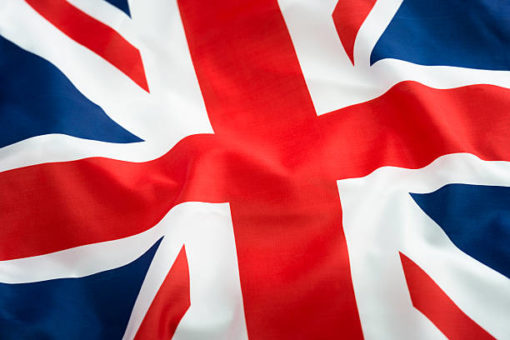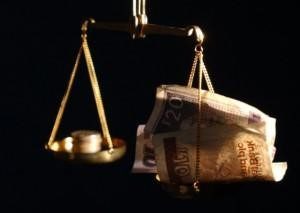UK Bingo Regulations & Laws
Bingo has always been big business in the UK, but now online bingo halls are extremely popular with more and more people are joining up. You might think that there are risks involved when you join such a site and deposit money, but if you choose a bingo hall that is based in the UK, you should have no worries. This is because UK bingo halls are regulated by the Gambling Commission and there is strong legislation in place to protect players. We’re going to guide you through all the most important laws and bingo regulations in the following article so keep reading as our experts have broken it all down.
What is the Gambling Commission and how do they Create Bingo Regulations?
 The UK Gambling Commission is the body in charge of all licencing and gambling regulation and legislation in the UK. This includes poker, sports betting, casino games, lotteries and bingo.
The UK Gambling Commission is the body in charge of all licencing and gambling regulation and legislation in the UK. This includes poker, sports betting, casino games, lotteries and bingo.
Their primary tasks are issuing licenses, creating and issuing codes of practice and rules for licensing types, regulating those they have issued licenses to, and investigating and prosecuting gambling offences.
As you can imagine, with all this on their plate, they’re pretty busy guys. Comparatively, with other countries, bingo regulations and gambling legislation are considered very strict in the UK and this helps protect players from rogue traders and bad practices in the industry, which we think it pretty awesome for you guys. The Gambling Commission ensures that all gambling laws and bingo regulations are enforced in multiple ways.
- Visits and reviews are made at specific time intervals to check on gambling businesses.
- Guidance and advice are provided to license holders to help them become compliant with the bingo regulations.
- Preventive or remedial action can be taken by the Gambling Commission in order for a bingo hall owner to become compliant if any issues are discovered. This can range from fines to loss of license, and therefore, the ability to trade.
The Gambling Commission define gambling to include bingo and bingo products, software and machines as such they have rules pertaining to each area. Whilst they do recognize that Bingo itself has no legal definition in terms to the rules and way of play, usually, bingo games in the UK are similar.
UK Bingo Regulation & Legislation
Let’s start by defining gambling in the eyes of UK bingo regulations. Gambling is defined in legislation as; casino gaming, placing bets of equal chance (aka bingo), betting or lotteries. The definition includes land-based and online facilities, often referred to as remote gambling. Online gambling is defined as partaking in gambling via phone, T.V or any other piece of technology designed for communication. This is pretty straight-forward, Bingo is classed as gambling in the UK both online and in a live hall when played for money. This means it is regulated by the Gambling Commission.
Online bingo has to comply with the same regulations that non-remote bingo has to comply with. This assures customers of the fairness of each game. Bingo hall owners must be compliant to a set of rules imposed by the Commission. There are four main elements to bingo regulation and we’re going to go through each here:
- The Gambling Act of 2005 and newer legislation and bingo regulation laid out in the Gambling, Licensing and Advertising 2014 Act.
- Licensing conditions.
- Technical Standards for software and machinery.
- Codes of practice.
Bingo Regulations & Laws: Gambling Act 2005 & 2014
As Bingo is played for money it falls under gambling regulation of 1968, 2005 & 2014. The 2005 Gambling Act was the first for many years and it aimed to let the laws and regulations catch up with the huge increase in gambling, both land-based and online. Things had changed hugely since 1968 (especially with the creation of the internet) and much more regulation was needed.
The 2005 Act established gambling and bingo regulation in the UK was to be based on the fundamental values that;
- Gambling sites must not be a source of crime and disorder;
- Gambling must be fair;
- And online gambling providers must protect children (anyone who is under 18 and therefore legally not allowed to gamble) and vulnerable people from gambling.
It was the 2005 GA that established the Gambling Commission and allows gambling businesses to advertise in the UK, but as you will see the later 2014 Act then tackled abuses in advertising and this was its main aim. In general, the UK gambling and bingo regulations say that bingo can only take place in a licensed premise or operator, using licensed software and those who are engaging in the game must be of legal age to do so. In the past, many online bingo sites targeting the UK used to be based off-shore to avoid the strict licensing regulations.
However, in the 2014 act this was overhauled, and currently, any online bingo site targeting and advertising to UK customers must be licenced by the UK, and adhere to advertising, tax laws and codes of conduct (unless listed in the Whitelist- see below). Additionally, it is the sites responsibility to know where their players are playing from and to have the adequate licensing. This is why you are now asked to verify not only your age, but also your address when you play online.
Bingo Regulation: The Whitelist
The advertising and licensing rules hold true for everyone except those on the ‘whitelisted’ gambling jurisdictions approved by the UK Gambling Commission because they have strong legislation in line with the protections offered by UK legislation & bingo regulations they are allowed to advertise and provide services to UK customers. These are:
- EEA (European Economic Area) Countries
- Alderney
- Antigua and Barbuda
- Gibraltar
- Isle of Man
- Tasmania
The Whitelist has caused some controversy with online sites outside of these jurisdictions arguing it goes against the free market and fair competition for customers, but it is better to be safe than sorry when it comes to online gambling. The strict legislation is not just in place to protect customers, but also to guard against international money laundering and large-scale crime.
Bingo Regulation: Licensing Conditions
 A bingo hall (both online and land-based) requires a bingo license. These licenses can be operating licenses, personal management licenses or premises licenses. When you are using a fully licensed site, the info will be easy to find as they will proudly display who gave them the license on site. If you cannot easily see this information, stay away from the gambling site.
A bingo hall (both online and land-based) requires a bingo license. These licenses can be operating licenses, personal management licenses or premises licenses. When you are using a fully licensed site, the info will be easy to find as they will proudly display who gave them the license on site. If you cannot easily see this information, stay away from the gambling site.
There are exceptions from each of these licenses and for example, operating licenses are not required if the bingo games are played for fundraising or in a pub. Licenses can be applied for to the Gambling Commission and if the process seems difficult sometimes, there are guidance articles designed for each kind of license that a person might want to request. Some of the elements that make up the rules and bingo regulations for license holders include the following areas: protection of money, segregation of funds (customer funds are to be kept separate client accounts), anti-money laundering regulations, provision on credit regulations, fair and transparent practices, responsible advertising and placement, reporting of key events & offences, regulations for betting types, how licenses must be displayed and so on (it’s very detailed). Once again, everything is listed on the page of the Gambling Commission. For online bingo, the companies create the software must also be licensed by the Gambling Commission as this ensures the games are fair.
Software Standards of Bingo Regulation
On top of the licensing bingo regulations, there are also software standards that must be met to ensure that all online bingo games are fair. These include:
- That software can only be created legally by specialised license holders.
- Software can only be installed by license holders
As with bingo hall regulations, the licensing conditions for software are strict and include game testing, which ensures that the games really payout the RTP advertised, they function as they should and that they generate random results- basically that they are not fixed.
Gaming machines must also meet specific technical standards. The Gambling Commission provides detailed information about each category of machines. License holders that own a UK bingo hall must report key events for software and machinery to the Gambling Commission such as gaming system faults and errors.
Codes of Practice in Bingo & Gambling Regulation
Codes of practice are part of the licensing agreements undertaken by the gambling operator- in this case, the bingo site or hall. They are detailed and pertain to the rules of the licence for both practical elements such not doing anything that goes against the aims of the licensing regulations and social responsibility such as:
- control of third party contracted bodies,
- protection of children from gambling and access to, I.D procedures,
- how to deal with problem gambling for customers and access information and support,
- Self-exclusion measures, time-outs,
- Training and referral procedures for casino staff to follow if they believe a customer has a gambling problem,
- Sites must explain and provide information to customers pertaining to what gambling is and how opportunities betting works.
Again, the codes of conduct are very strict and customer protection is at the forefront of the bingo regulation. Hopefully, this has given you a much better idea of just how the gambling commission and bingo regulations within the UK protect players. It is why you should always play with a licensed bingo operator as you will guarantee not only the fairness of the bingo room, but also that they are protecting you to the level of the law.
Whilst the licensing and bingo regulations might seem like a tedious process, you should know that it is designed to always benefit end-users. This way, you can have the guarantee that the games you engage in are fair no matter whether you play online or in real life. As always, the easiest way to find a great bingo site is to check out our expert recommendations and reviews. Happy gaming guys!



